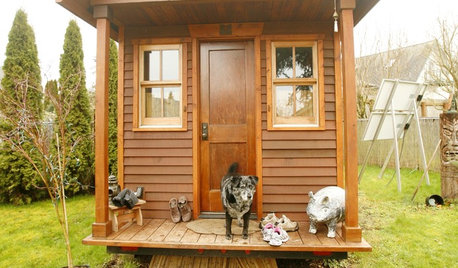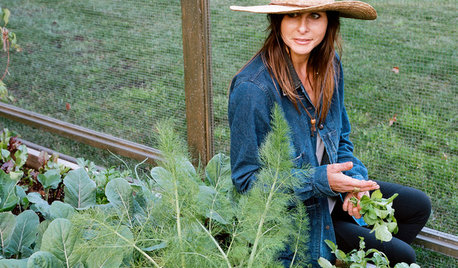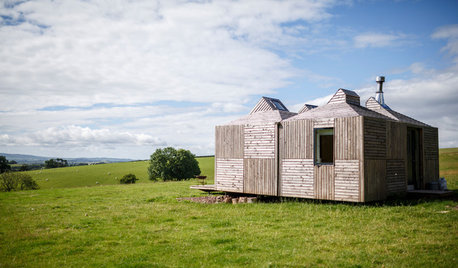Realistic Income Expectations from small farm
almcclur Amanda z9a San Antonio
16 years ago
Related Stories

BATHROOM DESIGN14 Bathroom Design Ideas Expected to Be Big in 2015
Award-winning designers reveal the bathroom features they believe will emerge or stay strong in the years ahead
Full Story
MOST POPULAR11 Things to Expect With Your Remodel
Prepare yourself. Knowing what lies ahead during renovations can save your nerves and smooth the process
Full Story
LANDSCAPE DESIGNDitch the Ordinary Ditch: Create a Realistic Dry Creek Bed
Here’s how to turn your water runoff system into an eye-catching accent for your landscape
Full Story
SMALL SPACESLife Lessons From 10 Years of Living in 84 Square Feet
Dee Williams was looking for a richer life. She found it by moving into a very tiny house
Full Story
FARM YOUR YARDAdvice on Canyon Farming From L.A.'s Vegetable Whisperer
See how a screened garden house and raised beds help an edible garden in a Los Angeles canyon thrive
Full Story
BEFORE AND AFTERSA Boston Kitchen and Bath Go From Dreary to Darling
See how a $25,000 renovation budget gave 2 outdated spaces in a small Massachusetts apartment a brand-new look
Full Story
DECORATING GUIDESTop Design Trends From the Winter 2015 Las Vegas Market
Interior designer Shannon Ggem is tracking finishes, motifs and design combinations at the 2015 show
Full Story
VACATION HOMESHouzz Tour: Scottish Farm Cottage Looks to Sun and Stars
A sheep field is home to a small, energy-efficient house that pulls ideas from mobile home design and raises the style level
Full Story
INSIDE HOUZZHouzz Prizewinners Take Their Kitchen From ‘Atrocious’ to ‘Wow’
A North Carolina family gets the kitchen they always wanted — and not a minute too soon — courtesy of the Houzz sweepstakes
Full Story
KITCHEN DESIGNStandouts From the 2014 Kitchen & Bath Industry Show
Check out the latest and greatest in sinks, ovens, countertop materials and more
Full StorySponsored
Columbus Design-Build, Kitchen & Bath Remodeling, Historic Renovations






sundae
almcclur Amanda z9a San AntonioOriginal Author
Related Professionals
Roosevelt Landscape Architects & Landscape Designers · Willowick Landscape Architects & Landscape Designers · Parkland Landscape Contractors · Welby Landscape Contractors · West Palm Beach Landscape Contractors · Hueytown Landscape Contractors · Beaverton Fence Contractors · Buena Park Fence Contractors · Chesterfield Fence Contractors · Hinsdale Fence Contractors · Hull Fence Contractors · Newark Fence Contractors · Pensacola Fence Contractors · Peoria Fence Contractors · Franconia Decks, Patios & Outdoor Enclosuresskagit_goat_man_
snycal
vancleaveterry
Dibbit
almcclur Amanda z9a San AntonioOriginal Author
Miss_Kitty
Dibbit
almcclur Amanda z9a San AntonioOriginal Author
Dibbit
jrslick (North Central Kansas, Zone 5B)
lfrj
almcclur Amanda z9a San AntonioOriginal Author
tuscanseed
mokevinb
vancleaveterry
bruglover
fancifowl